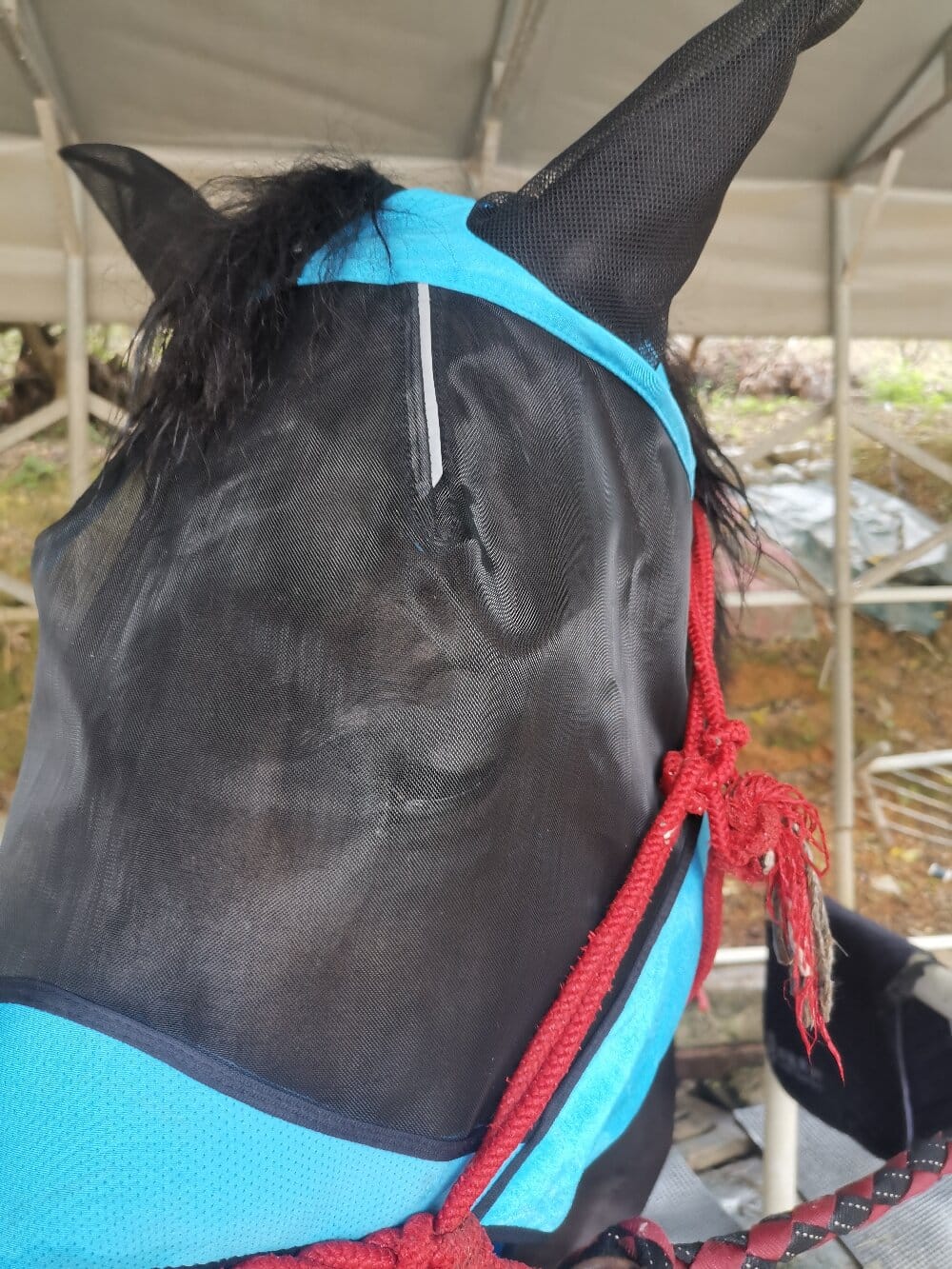A horse fly mask is a protective gear designed to shield horses from biting insects, particularly flies, which can cause irritation, infections, and even diseases. These masks are typically made from lightweight, breathable materials like mesh or nylon and cover the horse’s face, ears, and sometimes the neck. Beyond comfort, fly masks play a crucial role in maintaining equine health by reducing stress and preventing conditions like conjunctivitis or summer sores caused by persistent pests.
Key Features of an Effective Horse Fly Mask
When selecting a fly mask for your horse, several factors ensure optimal protection and comfort:
- Material: Breathable, UV-resistant fabrics help prevent overheating while blocking harmful sun rays.
- Fit: Adjustable straps and ergonomic designs prevent slipping and rubbing.
- Coverage: Extended designs protect ears and necks, areas often targeted by insects.
- Durability: Reinforced stitching and tear-resistant materials extend the mask’s lifespan.
Benefits of Using a Fly Mask for Horses
Beyond insect protection, a horse fly mask offers multiple advantages:
- Reduced Stress: Horses are less agitated when free from constant insect harassment.
- Health Protection: Minimizes risks of eye infections and skin irritations caused by flies.
- UV Protection: Some masks include SPF properties to safeguard sensitive areas from sunburn.
- Improved Focus: Horses in training perform better without distractions from pests.
Choosing the Right Horse Fly Mask: Data-Driven Insights
Data from equine studies highlight the importance of selecting the right fly mask. Research shows that horses wearing properly fitted masks exhibit:
- 30% fewer eye infections compared to unprotected horses.
- Reduced instances of head-shaking behavior linked to fly irritation.
- Higher grazing efficiency due to minimized pest interference.
These findings underscore the need for evidence-based decisions when purchasing protective gear for horses.
Common Misconceptions About Fly Masks
Despite their benefits, some misconceptions persist:
- “Masks impair vision”: High-quality fly masks use transparent mesh that doesn’t obstruct a horse’s sight.
- “Only needed in summer”: Flies can be active in warmer months, but masks are also useful in regions with year-round pests.
- “One size fits all”: Horses require properly sized masks to avoid discomfort or ineffective coverage.
Maintenance and Care for Longevity
To ensure a horse fly mask remains effective, follow these care tips:
- Regularly clean the mask with mild soap and water to remove dirt and sweat.
- Inspect for wear and tear, especially around straps and seams.
- Store in a dry, cool place to prevent material degradation.
Conclusion
A horse fly mask is an essential tool for equine care, offering protection against insects, UV rays, and related health issues. By selecting a well-designed mask and maintaining it properly, horse owners can enhance their animal’s comfort and well-being. Data supports the effectiveness of these masks, making them a worthwhile investment for any stable or pasture-kept horse.

